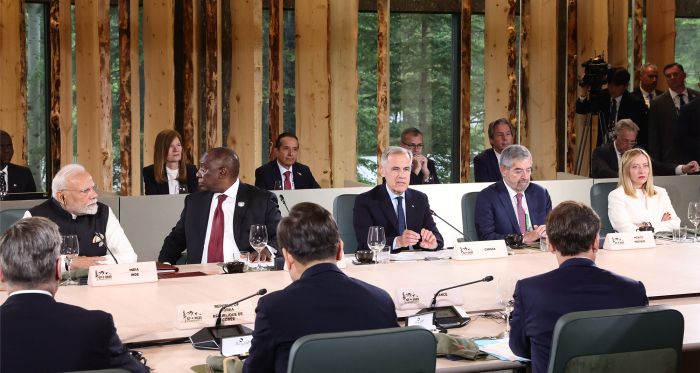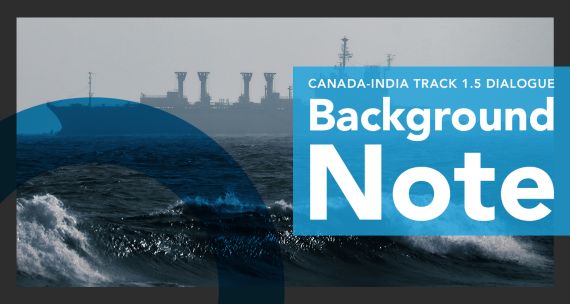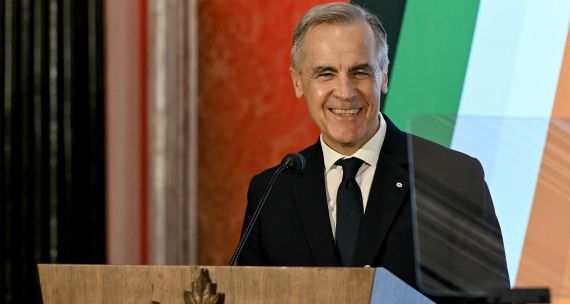As the excitement of the G7 in Kananaskis fades, it’s worth reflecting on where the strained but important Canada–India relationship may go from here.
At least on the surface, there was notable progress. The readout from Prime Minister Mark Carney’s bilateral meeting with Prime Minister Narendra Modi was pithy and businesslike—a marked departure from past practice. The announcement about the return of high commissioners is significant, especially as it comes with the restoration of broader diplomatic staffing. Such links are essential for building the official, business, and civil society networks needed to support a healthy bilateral relationship—especially one as large and complex as this. Depth and understanding in the official relationship—including on the security side—will complement robust and increasingly vital economic and people-to-people ties in a rapidly changing global environment.
For all the voices of concern, including from within Liberal ranks, Prime Minister Carney—as G7 chair—likely had little choice but to include PM Modi at Kananaskis. Beyond it being in Canada’s interests to have the Indian Prime Minister at the table, the other G7 leaders—all of whom have serious and increasingly strategic relationships with India—would have expected his presence. The downside of not inviting him would have been considerable: further damaging an already difficult bilateral relationship and highlighting, in a high-profile setting, Canada’s fraught relationships with India and China, the world’s two most populous countries.
This relationship is important—particularly for Canada—but increasingly so for India, as the chaos of Donald Trump’s administration metastasizes. Early Indian hopes for pragmatic, mutually beneficial engagement with a second Trump administration are being eroded by tariffs, erratic signalling from Washington, and Trump’s careless provocations in the India–Pakistan relationship, among other issues. With each new twist in Washington, the case in both Ottawa and Delhi for a reinvigorated, more sophisticated Canada–India relationship grows stronger. The focus must be on shared interests—economic, strategic, and multilateral—while acknowledging and managing differences.
Two near-term tests will shape this reset, particularly at the official level. One occurred this week: the 40th anniversary of the bombing of Air India Flight 182 by Khalistani extremists based in British Columbia. The other will be the likely uncomfortable developments in legal proceedings related to the 2023 murder of Canadian citizen and Khalistani activist Hardeep Singh Nijjar—allegedly by agents of India.
On the former, the anniversary was marked with reasonable care and thoughtfulness. A significant amount of long-form media coverage helped draw attention to an act of terrorism that remains the deadliest in Canadian history. Yet the complex political influence of the Khalistan movement in Canada over the decades remains largely undiscussed. Political representation at Canadian memorial events was limited—there were no federal or provincial ministers reported at ceremonies in Vancouver, Toronto, or Montreal. It was encouraging, however, that the heads of the RCMP and CSIS spoke at the Ottawa event, alongside three local MPs. Ministerial representation came at the memorial in Ireland, where Canada’s Minister of Public Safety joined the Irish Prime Minister and a senior Indian minister.
On the Nijjar case, one can hope that the legal process will provide an off-ramp from the current dysfunction in the official relationship. Evidence emerging from independent investigations and court proceedings will be harder to ignore or dismiss than political-level accusations.
It was also notable that G7 leaders issued a joint statement on countering transnational repression—a gesture unlikely to go unnoticed in Delhi, given the allegations aired over the past year. But Canada’s credibility on this issue will rest not on words but on domestic action—especially the implementation of a robust foreign agent registry. Such a move would signal that Canada is no longer a soft target for interference, from any source.
Despite the severity of the rift, the overlap in Canadian and Indian interests has only grown amid global turbulence. It is heartening that business and non-governmental engagement—including through the Asia Pacific Foundation of Canada—never ceased. Now is the time to build back more broadly: expanding official, private, and civil society ties to provide the ballast this relationship needs to weather its inevitable strains.
Canada’s strategic interests—and its credibility as a serious international actor—require that it approach India with both clarity and commitment: guided by values, informed by realism, and pursued through a whole-of-society approach.





